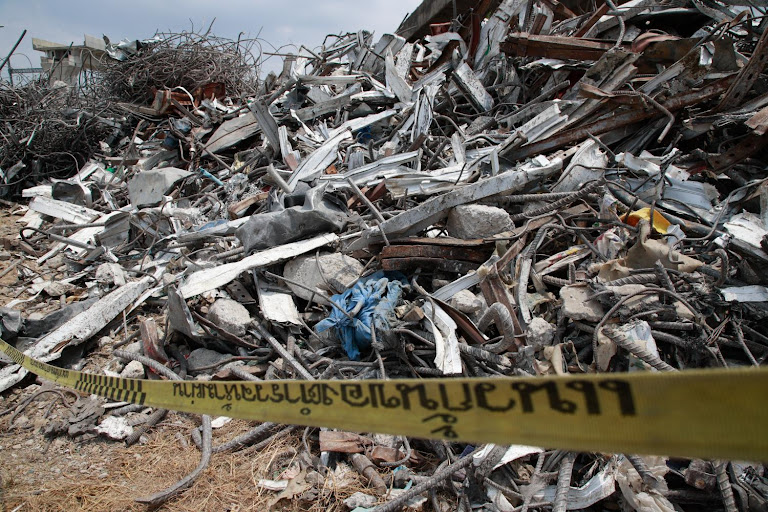Thailand Steel Scandal: Weak Oversight Endangers Public Safety.
Counterfeit invoices and radioactive waste mismanagement reveal how easily regulatory failures can endanger public safety and distort the market.

The story of Xin Ke Yuan Steel Co., as detailed in recent findings from the Bangkok Post, isn’t just about one company’s alleged malfeasance. It’s a stark illustration of how easily cracks can spread through systems we rely on, from the physical integrity of buildings to the financial underpinnings of a nation. The accusations against Xin Ke Yuan, ranging from issuing counterfeit tax invoices totaling over 200 million baht to stockpiling hazardous radioactive waste, raise troubling questions about regulatory oversight and the potential for such failures to ripple outward.
We’re accustomed to thinking about policy in silos. There’s tax policy, environmental policy, and building codes. But Xin Ke Yuan reminds us these are interconnected pieces of a much larger puzzle. When a company allegedly cheats on its taxes, it’s not just revenue lost. It’s a distortion of the market, undercutting honest competitors and potentially putting public safety at risk, as suggested by the collapsed State Audit Office building constructed with their steel. When a company reportedly misrepresents its hazardous waste holdings by a factor of twenty, as seems to be the case with Xin Ke Yuan’s caesium-137 stockpile, it’s not merely an environmental concern; it’s a betrayal of public trust with potentially severe health consequences.
The implications here are multi-layered:
- Erosion of Public Trust: Incidents like this weaken faith in institutions, from regulatory bodies to the businesses themselves.
- Economic Distortion: Tax fraud creates an uneven playing field, harming legitimate businesses and ultimately taxpayers.
- Safety Risks: The use of substandard materials in construction poses a direct threat to public safety, as tragically demonstrated by the building collapse.
- Environmental Hazard: The alleged misrepresentation of hazardous waste stockpiles creates significant environmental and health risks.
This case exposes a vulnerability at the heart of modern governance. How do we ensure compliance when the incentives for deception are so high? The Revenue Department’s criminal complaint and the Board of Investment’s revocation of Xin Ke Yuan’s privileges are necessary steps, but they are reactive. We need to move toward a more proactive system, one that incorporates greater transparency, stronger enforcement, and, perhaps most importantly, a culture of accountability that permeates every level, from the factory floor to the ministerial office.
“This isn’t just about steel and invoices. It’s about the fragility of systems we take for granted and the urgent need to strengthen the guardrails that protect us.”
The ongoing investigations, including those by the Department of Special Investigation (DSI), are crucial. But beyond uncovering the specifics of this case, we need to ask harder questions about how to prevent similar situations in the future. This requires a systemic approach, recognizing the interconnectedness of regulatory frameworks and the crucial role of robust oversight. The cost of not doing so is far greater than the sum of individual fines and penalties; it’s the erosion of the very structures that underpin a functioning society.









